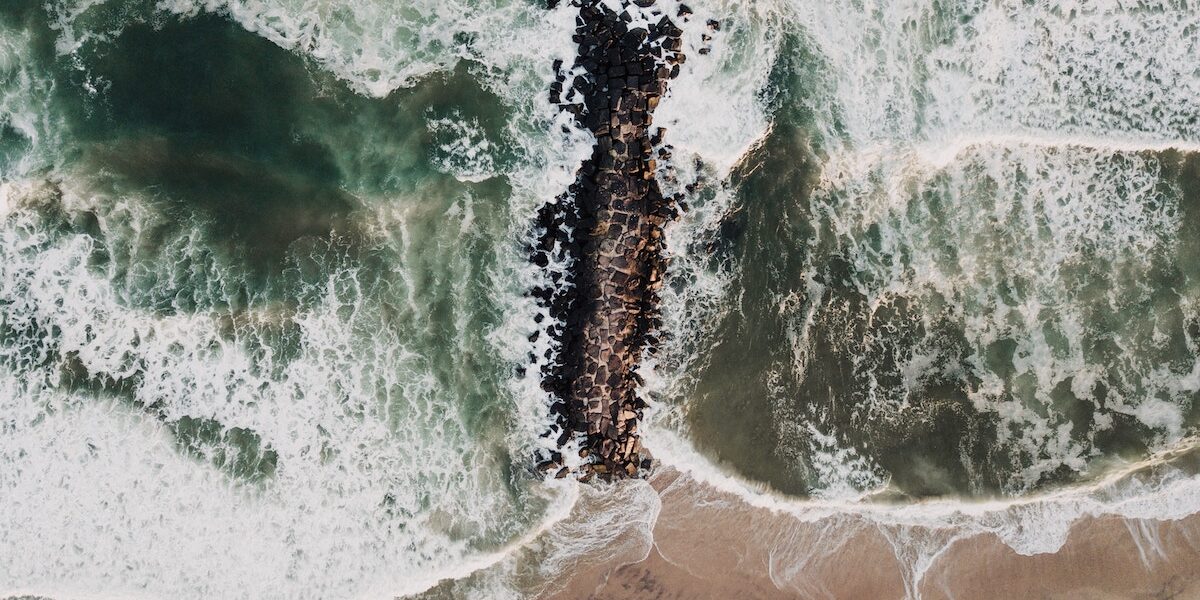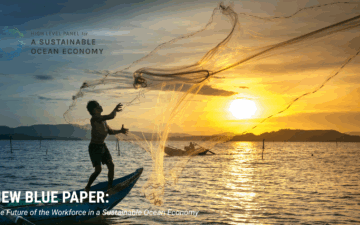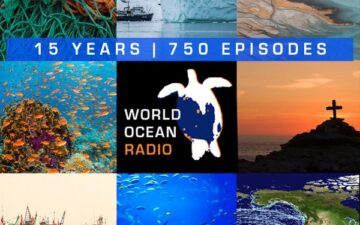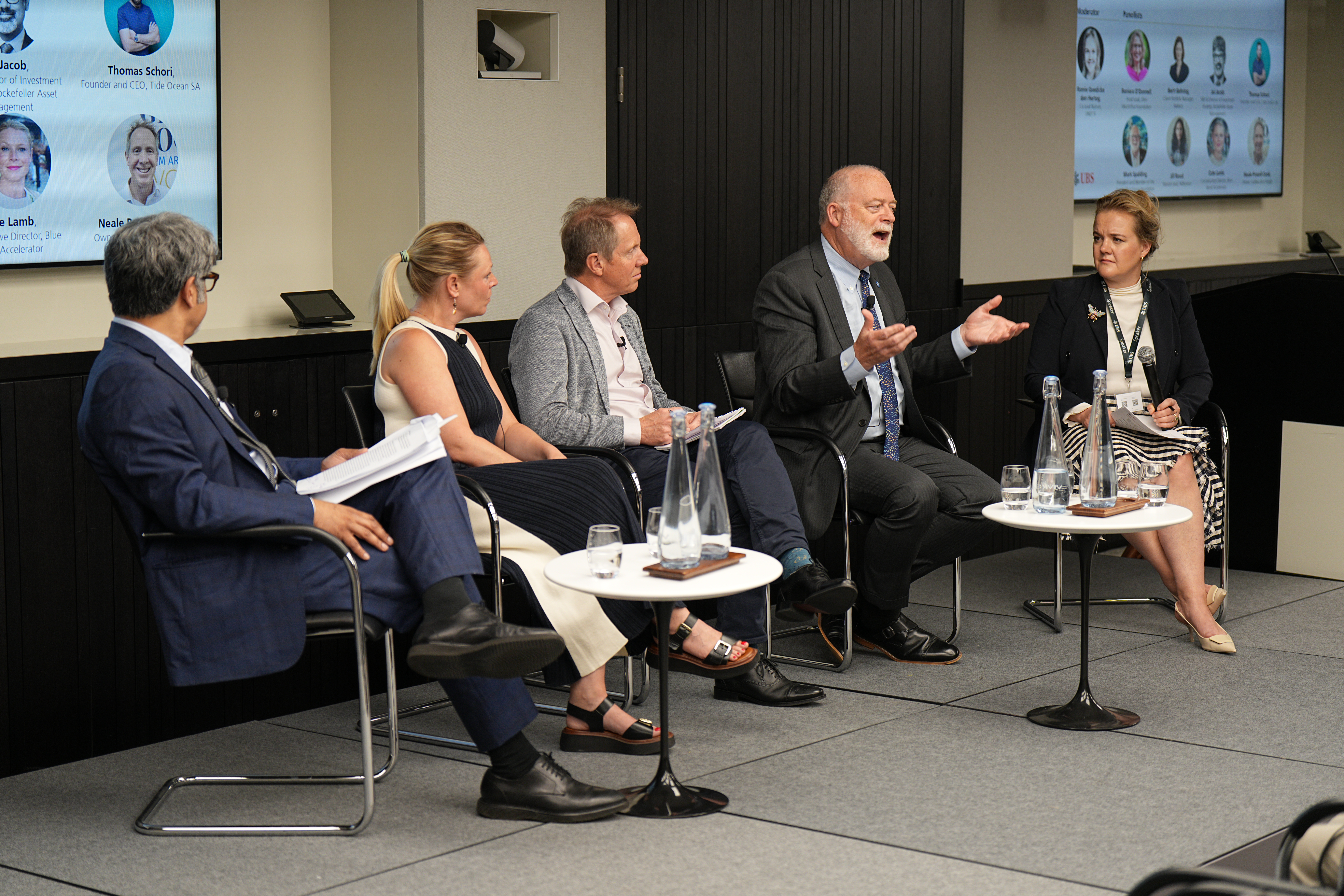June 8 was World Oceans Day, the President declared June to be National Oceans Month and many seem to have decided that is should be a global effort, deeming June World Oceans Month. I certainly feel that I have been immersed in ocean events and am excited to keep the momentum going.
At the beginning of the month, I was in Todos Santos, Baja California Sur, Mexico, with many of my ocean funding colleagues for the annual meeting of the funders who invest in biodiversity around the globe. About 130 of us spent four days discussing issues as varied as the personal safety of people who work on conservation issues to the mountains to the sea landscape scale protection work of organizations such as Conservacion Patagonica in Chile and Argentina.
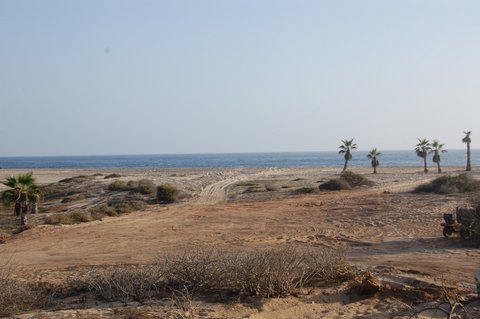
The following week was Capitol Hill Oceans Week (CHOW), an annual event put on by the National Marine Sanctuary Foundation that, among other things, includes an evening gala that celebrates the people who champion ocean issues. The room is always full of ocean heroes—from the 14 volunteer of the year nominees to Dr. Sylvia Earle to the Aquanauts—and there are annual awards. We heard a wonderful acceptance speech from Robyn Walters, the Sanctuary Volunteer of the Year. A volunteer at the Hawaiian Islands Humpback Whale National Marine Sanctuary since 2010, Robyn “has been an invaluable asset, serving in many different roles as volunteer: public lecturer, school group educational activities leader, visitor center docent, meeting organizer, sanctuary representative at community outreach events, speaker and participant on whale watch cruises, volunteer trainer, and administrative assistant.”
Bill Ruckelshaus and Norman Mineta shared the award for Lifetime Achievement (the 2011 winner was TOF’s founding Board chair Wolcott Henry). The two men serve as co-chairs of the Joint Oceans Commission Initiative. Their bipartisan message of dedication and determination on behalf of a healthy ocean stood in stark contrast to the kind of polarizing debate that has dominated the news of late. A wonderful video of their joint interview was shown.
The last award also celebrated a man whose hallmark is thoughtful and multi-faceted approaches to the challenges we face. Senator Carl Levin of Michigan, a champion of the Thunder Bay Marine Sanctuary, received the 2014 Leadership Award.
CHOW’s sessions covered a range of issues and featured a number of our friends and colleagues. I served on a lunchtime panel with NMSF Board member Dawn Martin and Heather Ludemann, Program Officer, Packard Foundation to discuss the role of foundation support in ocean conservation. TOF Board of Advisors member Barton Seaver was part of a session on the future of American fisheries. Barton is a chef and serves as Program Director of the Healthy and Sustainable Food Program at the Center for Health and the Global Environment, housed at Harvard’s School of Public Health. Sophia Mendelsohn, Head of Sustainability at JetBlue Airways talked about the TOF partnership with JetBlue as part of a panel on “Rethinking Business as Usual for the Ocean.”
On June 16 and June 17, we were again immersed in ocean issues, this time focusing on solutions at the global scale. Secretary John Kerry and the US Department of State convened the “Our Ocean” conference which gathered some 500 people, including heads of state, cabinet ministers, scientists, business leaders, and NGO representatives. Over the course of a two days, the conference focused on three major themes: ocean acidification, sustainable fisheries and marine pollution. Many members of The Ocean Foundation community were in attendance. Grantee and colleague Philippe Cousteau of Earth Echo International set the tone with his opening remarks. TOF’s Hoyt Peckham of our hosted project SmartFish, spoke about solving sea turtle bycatch in Japan, Mexico and Hawaii through participatory research during the solutions portion of the Sustainable Fisheries panel.
As part of the ocean acidification panel, I was given the opportunity to announce our new fund: “Friends of the Global Ocean Acidification Monitoring Network” to help communities ensure that we know where ocean acidification is occurring and when it spikes, so that its effects can be better mapped, understood, and then addressed. I also had the opportunity to collaborate with Sophia Mendelson, again, for a breakout session on the last afternoon that again highlighted our partnership with JetBlue to work on marine debris in the Caribbean.
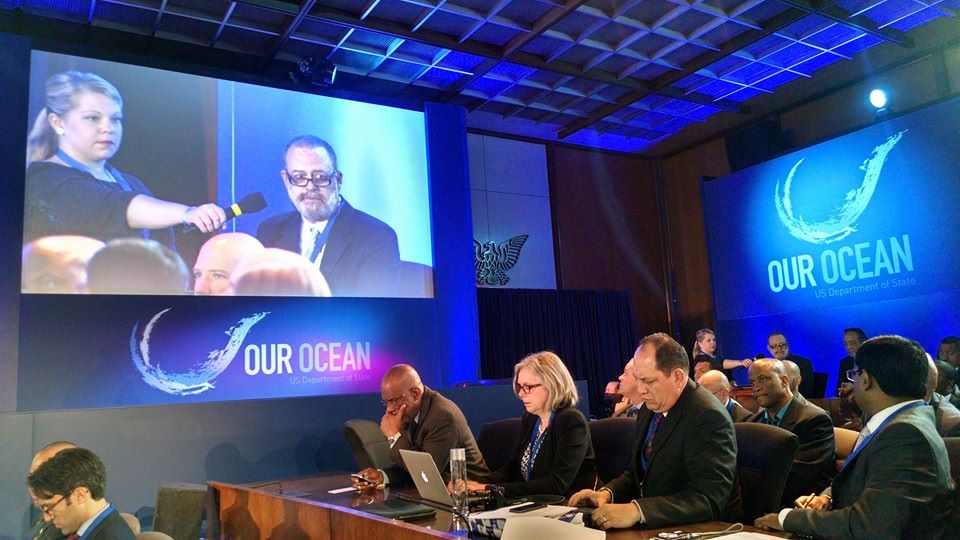
There were a lot of positive outcomes from the conference: President Obama announced a major expansion of protected areas in US territorial waters; President Tong of Kiribati announced that commercial fishing would be banned in his country’s Phoenix Islands Protected Area; And a number of different entities announced new commitments to invest in ocean health.
On June 19th a new book entitled “O Mar no Futuro de Portugal: Ciência e Visão Estratégica” (The Sea of Portugal in the Future: Science and Strategic Vision) was released in Lisbon, which included my chapter on “The role of Portugal in the future of Trans-Atlantic cooperation with US.”
On the 24th of June, the Global Oceans Commission announced its findings after 18 months of study of the global ocean and its need. Co-Chaired by José María Figueres, former President of Costa Rica, the Commission was created to formulate politically and technically feasible short-, medium- and long-term recommendations to address four key issues facing the high seas:
▪ overfishing
▪ large-scale loss of habitat and biodiversity
▪ the lack of effective management and enforcement
▪ deficiencies in high seas governance
At an event in the Ocean Hall of the American Museum of Natural History I New York, we gathered to hear about the Global Ocean Commission’s final report and proposals. The third annual Plasticity Forum took place in New York the following day. The Plasticity Forum is based on the premise that “every year 280 million tons of plastic is produced globally, yet estimates suggest that only 10% each year is actually recycled. Capturing this waste stream presents a significant and untapped business opportunity, as does the redesign of packaging, and the thought process around waste creation.” The Plasticity Forum presents ideas and opens up discussions on how to harness this material in new ways, both “pre” and “post” consumer use. This discussion is particularly relevant when it comes to the challenge of reducing marine debris and the growing problem of plastics in the ocean.
A month for the ocean is not enough. Here at The Ocean Foundation, we believe that every day should be a day we do something for the ocean. Join us in supporting those who dedicate their days to the health of the ocean.
